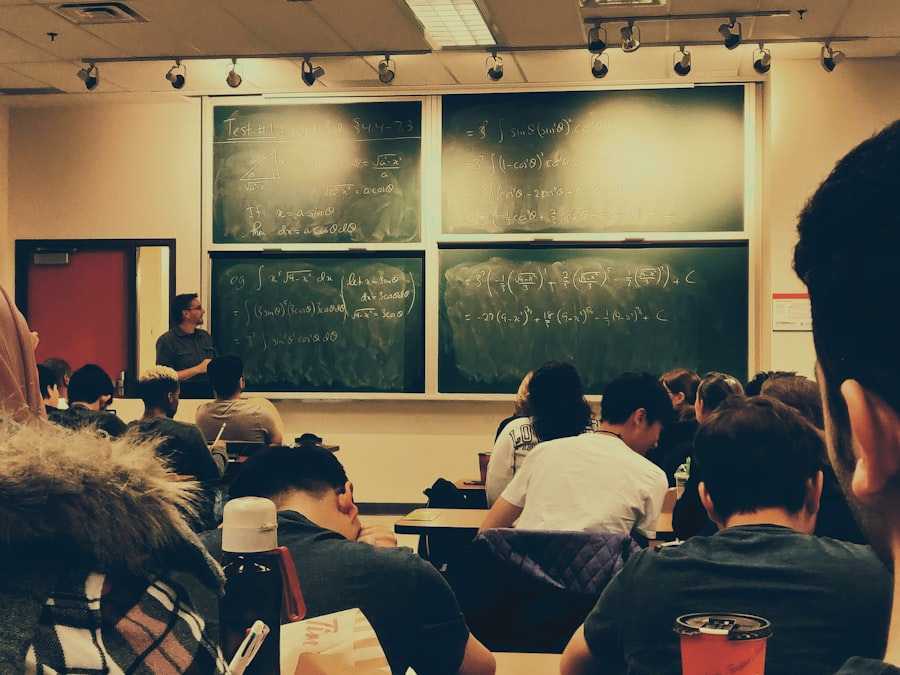In the digital age, education has transcended traditional boundaries, allowing learners from diverse backgrounds to access knowledge and skills through free learning platforms. These platforms have democratized education, making it possible for anyone with an internet connection to engage in self-directed learning. They offer a plethora of resources, including video lectures, interactive quizzes, and forums for discussion, catering to various learning styles and preferences.
The rise of these platforms has not only expanded access to information but has also fostered a global community of learners who can share insights and collaborate on projects. Free learning platforms are characterized by their open-access nature, which eliminates financial barriers that often hinder educational pursuits. Websites like Coursera, edX, and Khan Academy provide courses from renowned institutions and educators at no cost, enabling users to learn at their own pace.
This flexibility is particularly beneficial for individuals balancing work, family, or other commitments.
Moreover, the integration of technology in education has led to innovative teaching methods that enhance engagement and retention of knowledge.
As these platforms continue to evolve, they are increasingly incorporating features that promote peer interaction, such as forums and collaborative projects, which are essential for enriching the learning experience.
Key Takeaways
- Free learning platforms provide accessible and diverse educational resources for learners of all levels and backgrounds.
- Peer reviews and feedback play a crucial role in the learning process, offering valuable insights and perspectives from fellow learners.
- Using free learning platforms for peer reviews and feedback can enhance critical thinking, communication skills, and overall learning experience.
- Top free learning platforms like Coursera, edX, and Khan Academy offer robust peer review and feedback features for their courses.
- Giving and receiving effective peer reviews and feedback on free learning platforms requires clear communication, constructive criticism, and a growth mindset.
Importance of Peer Reviews and Feedback in Learning
Peer reviews and feedback play a crucial role in the learning process by fostering a culture of collaboration and critical thinking. When learners engage in peer review, they not only assess the work of others but also reflect on their own understanding and skills. This reciprocal process encourages deeper engagement with the material, as students must articulate their thoughts clearly and constructively.
The act of providing feedback requires learners to analyze content critically, which enhances their analytical skills and promotes a more profound comprehension of the subject matter. Furthermore, receiving feedback from peers can be incredibly valuable for personal growth. Constructive criticism offers insights that learners may not have considered, helping them identify areas for improvement.
This feedback loop creates an environment where learners feel supported and motivated to refine their work. In many cases, peer reviews can lead to a sense of accountability; knowing that others will evaluate their contributions encourages learners to put forth their best effort. This dynamic not only enhances individual performance but also cultivates a sense of community among learners, fostering relationships that can lead to collaborative opportunities beyond the platform.
Benefits of Using Free Learning Platforms for Peer Reviews and Feedback

Utilizing free learning platforms for peer reviews and feedback presents numerous advantages that enhance the educational experience. One significant benefit is the diversity of perspectives that learners encounter when engaging with peers from various backgrounds and cultures. This exposure broadens their understanding of different viewpoints and approaches to problem-solving, enriching their learning journey.
The collaborative nature of peer reviews encourages learners to consider alternative solutions and methodologies, which can lead to innovative ideas and improved outcomes. Additionally, free learning platforms often incorporate structured frameworks for peer reviews that guide users in providing meaningful feedback. These frameworks can include rubrics or specific criteria that help learners focus on essential aspects of the work being reviewed.
Such structures not only streamline the review process but also ensure that feedback is constructive and relevant. Moreover, the anonymity often afforded by online platforms can encourage more honest and candid feedback, as learners may feel less inhibited when sharing their thoughts. This openness can lead to more significant insights and improvements in both the reviewer’s and the recipient’s work.
Top Free Learning Platforms That Offer Peer Reviews and Feedback
Several free learning platforms stand out for their robust features that facilitate peer reviews and feedback. One notable example is Coursera, which partners with leading universities to offer courses across various disciplines. Many courses on Coursera include peer-reviewed assignments where students evaluate each other’s work based on established criteria.
This process not only helps learners improve their skills but also fosters a sense of community among participants. Another prominent platform is edX, which similarly provides opportunities for peer interaction through its courses. EdX features discussion forums where learners can share insights and provide feedback on assignments.
The platform’s emphasis on collaborative learning encourages users to engage with one another actively, enhancing the overall educational experience. Additionally, platforms like FutureLearn offer social learning opportunities where learners can comment on each other’s work and participate in group discussions, further enriching the peer review process. Khan Academy is another excellent resource that emphasizes mastery-based learning.
While it may not focus explicitly on peer reviews in the same way as Coursera or edX, it encourages collaborative learning through its community features. Learners can ask questions and provide answers to peers, creating an interactive environment where feedback is exchanged organically.
How to Give and Receive Effective Peer Reviews and Feedback
Giving and receiving effective peer reviews requires a thoughtful approach that prioritizes clarity and constructiveness. When providing feedback, it is essential to be specific about what aspects of the work were effective or need improvement. Instead of vague statements like “this is good,” reviewers should highlight particular strengths or weaknesses, such as “the argument is well-structured but could benefit from more supporting evidence.” This specificity helps the recipient understand exactly what they did well and where they can improve.
On the receiving end, it is crucial to approach feedback with an open mind. Learners should view critiques as opportunities for growth rather than personal attacks. Engaging with feedback involves reflecting on the comments received and considering how they can be applied to enhance future work.
It can be helpful to ask clarifying questions if any feedback is unclear or seems contradictory.
This dialogue not only aids in understanding but also fosters a collaborative spirit between peers.
Tips for Utilizing Peer Reviews and Feedback on Free Learning Platforms

To maximize the benefits of peer reviews and feedback on free learning platforms, learners should adopt several strategies. First, setting clear goals for what they hope to achieve through peer interactions can provide direction during the review process. Whether aiming to improve writing skills or gain insights into a specific topic, having defined objectives helps focus efforts.
Additionally, actively participating in discussions beyond formal assignments can enhance learning outcomes. Engaging with peers in forums or comment sections allows learners to share ideas and perspectives that may not be captured in structured reviews. This informal exchange can lead to deeper understanding and foster relationships that extend beyond individual courses.
Moreover, learners should take time to reflect on the feedback they receive before making revisions or adjustments to their work. This reflection period allows them to process the information critically and determine how best to incorporate suggestions into their future projects. By treating feedback as a valuable resource rather than a mere obligation, learners can cultivate a mindset geared toward continuous improvement.
Case Studies: Success Stories from Users of Free Learning Platforms
Numerous success stories illustrate the transformative impact of free learning platforms that incorporate peer reviews and feedback. One such case involves a student named Sarah who enrolled in an online writing course on Coursera. Through the peer review process, she received constructive criticism from her classmates that highlighted her strengths in narrative style while pointing out areas where her arguments lacked clarity.
By applying this feedback in subsequent assignments, Sarah significantly improved her writing skills and ultimately published her first short story in an online literary magazine. Another compelling example comes from a group of engineering students who utilized edX for a collaborative project on sustainable energy solutions. The platform’s peer review feature allowed them to critique each other’s designs and proposals rigorously.
Through this process, they identified innovative approaches that none had considered individually. Their final project not only received high marks from instructors but also garnered attention from industry professionals at a local innovation fair. These case studies underscore how peer reviews on free learning platforms can lead to tangible improvements in skills and foster collaboration among learners from diverse backgrounds.
The Future of Peer Reviews and Feedback in Free Learning Platforms
As free learning platforms continue to evolve, the integration of peer reviews and feedback will likely become even more sophisticated and essential to the educational experience. The growing emphasis on collaborative learning reflects a broader shift towards recognizing the value of social interaction in education. With advancements in technology, such as artificial intelligence and machine learning, these platforms may soon offer personalized feedback mechanisms that adapt to individual learner needs while still promoting peer engagement.
Moreover, as global connectivity increases, the potential for cross-cultural collaboration through peer reviews will expand significantly. Learners will have opportunities to engage with diverse perspectives that enrich their understanding of various subjects while developing critical soft skills such as communication and teamwork. The future of education lies in harnessing these collaborative elements effectively, ensuring that learners are not only consumers of knowledge but also active participants in a vibrant global learning community.
FAQs
What are free learning platforms?
Free learning platforms are online resources that offer educational content and tools for users to learn new skills, subjects, or topics without any cost. These platforms may offer courses, tutorials, videos, and other learning materials.
What is peer review and feedback in the context of learning platforms?
Peer review and feedback on learning platforms involve the process of students providing constructive criticism and comments on each other’s work. This can include reviewing assignments, projects, or other learning materials and providing feedback to help improve the quality of the work.
Which free learning platforms offer peer reviews and feedback?
Some free learning platforms that offer peer reviews and feedback include Coursera, edX, FutureLearn, and OpenLearn. These platforms provide opportunities for students to engage in peer review activities as part of their learning experience.
How does peer review and feedback benefit learners on these platforms?
Peer review and feedback can benefit learners on these platforms by providing them with diverse perspectives and insights on their work. It can also help improve critical thinking and communication skills, as well as foster a sense of community and collaboration among learners.
Are there any limitations to peer reviews and feedback on free learning platforms?
Limitations to peer reviews and feedback on free learning platforms may include the quality and reliability of the feedback provided, as well as the potential for bias or lack of expertise among peers. Additionally, some learners may struggle with giving or receiving constructive criticism.






